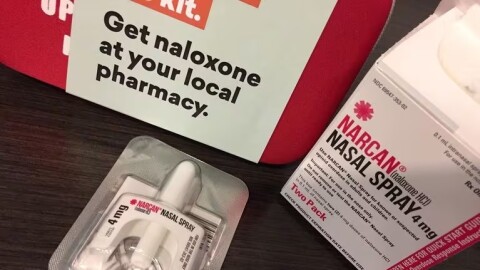-
The county joins 24 others in California using vending machines to distribute the overdose-reversal drug for free.
-
Oregon will receive $10.1 million for drug prevention and treatment services as part of a nationwide settlement with eight opioid manufacturers.
-
Some who worked on the litigation argue it doesn't go far enough.
-
Millions of dollars have become available for medications to treat opioid addiction in Oregon jails. That’s given Jackson County a rare sign of hope in the opioid epidemic.
-
Employers and unions are grappling with the opioid crisis, while the state inches toward requiring Narcan in workplaces.
-
20 different nonprofits and government agencies presented at a Shasta County Board of Supervisors meeting Tuesday to ask for their slice of nearly $40 million in opioid settlement dollars.
-
An Oregon Health & Science University study found states cannot slow the opioid crisis solely with more flexibility to use Medicaid funding for addiction treatment.
-
State officials awarded $2.36 million to the project by Bay Area First Step, which will be the first of its kind in Curry County.
-
Rural Oregon groups to get opioid settlement funding to set up recovery centers to help people in addiction.
-
The opioid epidemic, boosted by the arrival of the drug fentanyl, has torn through communities in Southern Oregon. It’s also having a devastating impact on mothers struggling with addiction. An innovative facility in the Rogue Valley is helping those parents and their children.
-
The psychiatric hospital is reviewing its in-person visitation policies as Oregon State Police investigate the overdose.
-
The money is part of $600 million in opioid settlement funds the state is expected to receive over the next two decades.
-
Josh Wallner-Sentle's death was one of over 100 fatal overdoses in Jackson County last year. Many involved fentanyl, a highly addictive and powerful synthetic opioid that can be mixed into other drugs.
-
The subject is expected to be a flash point in this year’s legislative session.














